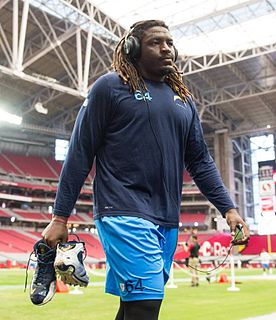A Quote by Jean Chatzky
To bring down your credit card balances, write down the benefits of reducing your debt. No more gnawing feeling that you're throwing money away, perhaps. More money flowing to other financial objectives. Then consult the list when you have doubts.
Related Quotes
If you have credit card debt and credit card companies continue to close down the cards, what are you going to do? What are you going to do if they raise your interest rates to 32 percent? That's five times higher than what your kid is going to pay in interest on a student loan. Get rid of your credit card debt.
There's also consumer debt, the credit card debt that burdens many of the working families in America. Yes, we talk about national debt, and we're paying a lot down. But you're fixing to hear me tell you part of the remedy for people who have got a lot of credit card debt is to make sure people get some of their own money back.
By working toward a financial objective, you'll start to see the money add up for retirement or the credit card balance go down. But it doesn't have an immediate impact on your day-to-day life, and when it does - like when you're pinching pennies to save more - the immediate impact could feel negative.
If you do not have at least an eight-month emergency fund, and you think there's a probability you could loose your job - and it's not just losing your job; you could be in a car accident, get sick - continue to pay the minimum on your credit card every month. Everything beyond that needs to go to establish an emergency fund. And if you have an emergency fund saved, then fund your retirement account before paying down credit card debt.
There are two definitions of deflation. Most people think of it simply as prices going down. But debt deflation is what happens when people have to spend more and more of their income to carry the debts that they've run up - to pay their mortgage debt, to pay the credit card debt, to pay student loans.


























